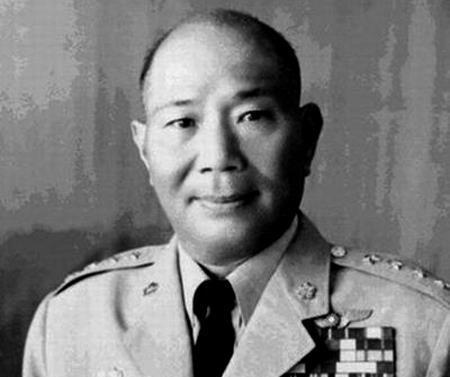Before we introduce this person, let's take a look at a small story.
In 1956, kuomintang general Zhou Zhirou visited the United States, and when passing through Japan, he planned to stay for a week, and the local personnel planned to arrange for Zhou Zhirou to visit Tokyo and nearby historical places.
Who knows, Zhou Zhirou waved his hand and said, "What is there to see in Japanese culture?" Japanese culture is all from China, no need to look! ”
So, what to see? Zhou Zhirou said: "I heard that all the new facilities in Japan after the war include entertainment, and they are imitated by the United States, and even better than the United States. ”
Therefore, the staff arranged for him to inspect Japanese opera houses, aquariums, department stores, supermarkets, electronics companies, etc., which opened Zhou Zhirou's eyes.

Zhou Zhirou was born in 1899 in Taizhou, Zhejiang Province, his father was a junior officer in the late Qing Dynasty, so he was fascinated, and Zhou Zhirou was also determined to break through the military circles.
In August 1918, after graduating from Zhejiang Provincial No. 6 Middle School, Zhou Zhirou was admitted to the Baoding Army Officer School. Here, he got to know Chen Cheng, Luo Zhuoying and other people, and also opened his "open and hanging" life.
After being introduced by Chen Cheng, in the spring of 1924, Zhou Zhirou went south to Guangzhou and entered the Whampoa Military Academy as a captain instructor, so many Whampoa students saw him and were honored as teachers.
After that, in the Northern Expedition And the Central Plains War, Zhou Zhirou repeatedly made meritorious contributions and won the attention of Chiang Kai-shek. Coupled with Chen Cheng's help, Zhou Zhirou began to soar and become the backbone of Chen Cheng's system.
In May 1933, also under the recommendation of Chen Cheng, Chiang Kai-shek selected Zhou Zhirou to go to Europe and the United States to study the air force.
Since then, Zhou Zhirou left the army system and began to enter the air force, participating in the establishment of the air system, training pilots, purchasing aircraft, etc., completing a series of air force deployments, and by the time the outbreak of the all-out War of Resistance, the Kuomintang Air Force had begun to take shape.
After the outbreak of the All-out War of Resistance Against Japanese Aggression, the Aviation Committee set up a new "General Headquarters of the Former Enemy" to be responsible for the operational affairs of the Air Force, with Zhou Zhirou as the commander-in-chief.
On August 14, 1937, the day after the Battle of Songhu, the Chinese Air Force took off to meet the Japanese.
After a difficult battle, the Chinese Air Force defeated 6 Japanese aircraft with almost zero losses, including 3 directly shot down Japanese aircraft, 1 crashed after being injured, and 2 missing.
This was the first victory of the Chinese Air Force in the air battle against the Japanese army, breaking the myth of the invincibility of the Japanese Air Force. To celebrate this victory, the Nationalist government designated August 14 as "Air Force Day."
Throughout the period of the War of Resistance Against Japanese Aggression, the Chinese Air Force repeatedly defeated the japanese Air Force's indomitable arrogance with few victories and victories over the strong with the weak, and gao Zhihang, Yan Haiwen, Shen Chonghai, Xu Huansheng, and other heroes of the War of Resistance against Japanese Aggression emerged, all of which have forever entered the annals of China's War of Resistance.
After the victory of the War of Resistance Against Japanese Aggression, in 1946, the "Aviation Committee" was reorganized into the General Command of the Air Force, and Zhou Zhirou became the first commander of the Air Force.
To say why Zhou Zhirou was valued by Chiang Kai-shek, it should be said that he was inseparable from his ability and loyalty, and both were indispensable.
After going to Taiwan, Zhou Zhirou was promoted to "chief of staff of the Ministry of National Defense," concurrently served as "commander-in-chief of the Air Force," and was promoted to "general of the first rank," holding a high position of authority. After that, he began to rectify the "three armies", no matter how big or small. In order to verify the problem of the army's long-term short salary, he personally organized an investigation and verified the 840,000 people of the "three services" as 577,000 people.
Another important reason why Zhou Zhirou won Chiang Kai-shek's trust was that he "escorted" Chiang Ching-kuo.
In July 1954, Zhou Zhirou was ordered by Chiang Kai-shek to organize the "National Defense Conference" and served as the "Secretary-General", and the "Deputy Secretary-General" was Chiang Ching-kuo.
Zhou Zhirou naturally understood that the establishment of this institution was the reason why old Chiang Ching-kuo had deliberately provided Chiang Ching-kuo with the opportunity to step into the military circles, so he tacitly supported Chiang Ching-kuo and escorted Chiang Ching-kuo's ascension to the throne.
In addition, Zhou Zhirou is also a rare person among the generals of the Nationalist Army who understands both military and modernization construction, such as the story at the beginning of this article, which fully reflects his emphasis on economic construction. How can such a talent not be valued by Chiang Kai-shek?
On August 29, 1986, Zhou Zhirou died of illness at the age of 87.